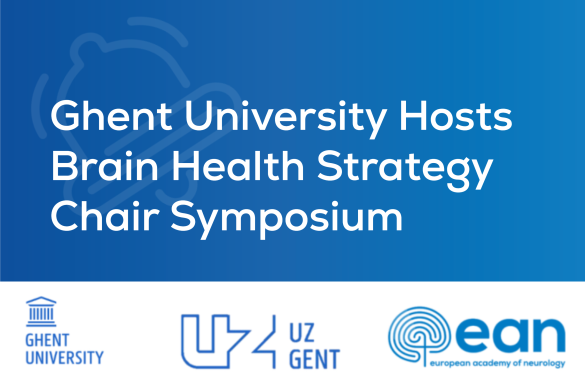
EAN Guideline: Medical management issues in dementia
This Guideline addresses a number of medical issues which neurologists and other medical doctors who are involved in the medical management of patients with dementia are confronted with on a regular basis. At present no disease-modifying therapy is available for the neurodegenerative dementias, but a number of associated symptoms and co-morbidities are manageable. Timely recognition and treatment of these may lead to improved quality of life, slow progression of the disease and reduce morbidity and mortality. The Guideline addresses 5 such areas: systematic medical follow-up in dementia, management of vascular risk factors in dementia, management of pain in dementia, treatment of agitation/aggressive behavior with anti-psychotics in dementia, and epilepsy in dementia. While these issues are important for the management of patients with dementia, we were able to find very little or no evidence to inform the recommendations in the Guideline. For example, no studies testing whether patients with dementia should be followed up were identified despite the fact that this is an issue with relevance for any patient diagnosed with dementia.
The Guideline gives a Good practice statement on the issue of systematic medical follow-up: ”Patients with dementia should be offered regular, preplanned medical follow-up. The setting will depend on the organization of local health services and should as a minimum include general practitioners with easy access to dementia specialists.”
The emphasis is on follow-up being preplanned as opposed to “as needed” as many patients with dementia do not have insight or awareness of health issues or need for care and may therefore not seek help. On the other hand, local organization and resources will dictate where and by whom this will be carried out.
Another issue addressed in the paper is whether patients with dementia and atrial fibrillation, where there is indication for treatment with anti-coagulants should be treated with these. The reason for addressing this issue is that some physicians may be reluctant to initiate treatment perhaps due to concerns regarding unwanted side-effects. The Guideline gives a weak recommendation for treatment with anticoagulants in patients with dementia (without previous stroke) and atrial fibrillation. This means that for the majority of these patients should be treated but that a substantial number of patients should not, for example where there is concerns regarding compliance or advanced dementia.
For the patient and caregiver
Persons with dementia often suffer from other illnesses other than dementia or symptoms not always ascribed to the dementia disorder. Some of these conditions such as epilepsy or changes in behavior may however be related to dementia. Others are conditions that are unrelated to dementia, but their management and treatment may be impacted by the cognitive impairment, a person with dementia suffers from. In the present Guideline such issues were addressed including whether a person with dementia should be seen regularly by a physician, whether vascular risk factors should be treated, how epilepsy and pain in persons with dementia should be managed, and whether certain changes in behavior should be treated with anti-psychotics.
***
Abstract
Background and purpose
Dementia is one of the most common disorders and is associated with increased morbidity, mortality and decreased quality of life. The present guideline addresses important medical management issues including systematic medical follow‐up, vascular risk factors in dementia, pain in dementia, use of antipsychotics in dementia and epilepsy in dementia.
Methods
A systematic review of the literature was carried out. Based on the Grading of Recommendations, Assessment, Development and Evaluations (GRADE) framework, we developed a guideline. Where recommendations based on GRADE were not possible, a good practice statement was formulated.
Results
Systematic management of vascular risk factors should be performed in patients with mild to moderate dementia as prevention of cerebrovascular pathology may impact on the progression of dementia (Good Practice statement). Individuals with dementia (without previous stroke) and atrial fibrillation should be treated with anticoagulants (weak recommendation). Discontinuation of opioids should be considered in certain individuals with dementia (e.g. for whom there are no signs or symptoms of pain or no clear indication, or suspicion of side effects; Good Practice statement). Behavioral symptoms in persons with dementia should not be treated with mild analgesics (weak recommendation). In all patients with dementia treated with opioids, assessment of the individual risk–benefit ratio should be performed at regular intervals. Regular, preplanned medical follow‐up should be offered to all patients with dementia. The setting will depend on the organization of local health services and should, as a minimum, include general practitioners with easy access to dementia specialists (Good Practice statement). Individuals with dementia and agitation and/or aggression should be treated with atypical antipsychotics only after all non‐pharmacological measures have been proven to be without benefit or in the case of severe self‐harm or harm to others (weak recommendation). Antipsychotics should be discontinued after cessation of behavioral disturbances and in patients in whom there are side effects (Good Practice statement). For treatment of epilepsy in individuals with dementia, newer anticonvulsants should be considered as first‐line therapy (Good Practice statement).
Conclusion
This GRADE‐based guideline offers recommendations on several important medical issues in patients with dementia, and thus adds important guidance for clinicians. For some issues, very little or no evidence was identified, highlighting the importance of further studies within these areas.
First published: 26 July 2020: https://doi.org/10.1111/ene.14412












